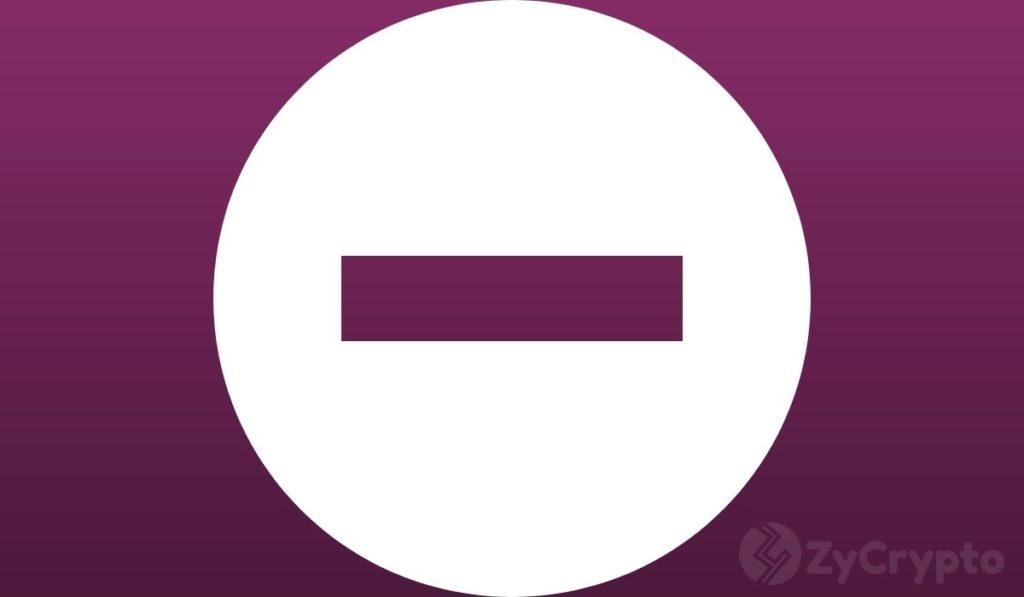2019-10-9 10:40 |
One of Germany’s largest cooperative banks has begun charging its retail customers a negative interest rate. Other major banks could follow suit since the European Central Bank cut the deposit rate to a record low. Deutsche Bank recently said that it needs to be “much more robust about passing on negative rates.”
Also read: Massive Layoffs: Banks Cutting Nearly 60,000 Jobs Worldwide
Berliner VolksbankBerliner Volksbank is one of the largest German cooperative banks, with total assets of approximately 14 billion euros (~$15.4 billion). Describing itself as “the largest regional cooperative bank in Germany,” the bank has approximately 75 branches and more than 370 cashpoints in the German states of Berlin and Brandenburg.
The bank started applying a minus 0.5% rate on deposits exceeding 100,000 euros (~$110,000) last week, effectively charging customers half a percent to hold their savings. According to local media, the bank explained that its new policy is due to the move by the European Central Bank (ECB) last month to cut the deposit rate to a record low, from -0.4% to -0.5%.
At the rate of -0.4%, the ECB’s negative interest-rate policy was already costing German banks 2.4 billion euros a year, the Financial Times reported in August, emphasizing that German banks are hit the hardest in Europe because they hold about a third of the total excess deposits on which the ECB levies negative rates. The ECB introduced negative interest rates in June 2014 in an effort to stimulate the economy.
So far, most German banks have not passed on the negative interest rate burden to retail customers, opting to absorb the costs themselves to uphold their reputation and prevent mass withdrawals. A study by management consultant Investors Marketing shows that one in two Germans could leave their banks if they started charging negative interest rates.
Deutsche Bank and CommerzbankGermany’s largest bank, Deutsche Bank, is also contemplating the prospect of applying negative interest rates on customer accounts. CFO James von Moltke said at the September Bank of America Merrill Lynch Annual Financials Conference 2019 in London that “We need to be much more robust about passing on negative rates.” He added: “We are very cautious about whether in a mass retail setting we would be able to pass on negative rates for legal reasons, including documentation requirements and other reasons, including politics.”
Another major bank in the country, Commerzbank, is currently not considering passing on the negative interest rate costs to retail clients, Bloomberg reported the bank’s CFO, Stephan Engels, confirming in September.
Deutsche Bank and Commerzbank attempted a merger early this year, but the plan was abandoned as the pair decided that the benefits generated by the deal would not offset the costs of the merger. The two banks subsequently announced massive layoffs, with Deutsche Bank planning to lay off 18,000 workers and Commerzbank planning to let go of 4,300 employees.
Other Banks Could FollowThe National Association of German Cooperative Banks, the association for the cooperative banking sector in Germany, believes that other banks may follow the move by Berliner Volksbank. “It can not be ruled out that additional customers or products will be affected,” spokeswoman Cornelia Schulz was quoted by Bloomberg as saying. Oliver Maier, Managing Director of market research firm Verivox Finanzvergleich, elaborated: “Things are changing in the industry and we expect further negative interest rates, especially since one of the major cooperative lenders has now taken that step.”
Oswald Gruebel, a former Credit Suisse CEO and an ex-executive of UBS Group AG, commented on the issue in an interview with Swiss newspaper NZZ am Sonntag:
Negative interest rates are crazy. That means money is not worth anything any more … As long as we have negative interest rates, the financial industry will continue to shrink.
According to data provider Biallo.de, a number of smaller banks have already opted to share the negative rate burden with their corporate and wealthy clients, but the threshold is usually much higher than the 100,000 euros set by Berliner Volksbank. Germany’s largest savings bank, Hamburger Sparkasse, told the Financial Times in August that it had already levied “custody fees” on private customers with deposits above €500,000 and corporate customers with over €250,000 in their account.
German Finance Minister Olaf ScholzMeanwhile, German Finance Minister Olaf Scholz said last month that he had told banks not to pass on the ECB’s negative interest rates to savers. He was quoted by Reuters as saying:
I told [the] bank chief very clearly that it would be a fairly bad idea to react by slapping negative rates on millions of savers.
What do you think of German banks slapping negative rates on customers? Let us know in the comments section below.
Disclaimer: This article is for informational purposes only. It is not an offer or solicitation of an offer to buy or sell, or as a recommendation, endorsement, or sponsorship of any products, services, or companies. Bitcoin.com does not provide investment, tax, legal, or accounting advice. Neither the company nor the author is responsible, directly or indirectly, for any damage or loss caused or alleged to be caused by or in connection with the use of or reliance on any content, goods or services mentioned in this article.
Images courtesy of Shutterstock.
Did you know you can buy and sell BCH privately using our noncustodial, peer-to-peer Local Bitcoin Cash trading platform? The local.Bitcoin.com marketplace has thousands of participants from all around the world trading BCH right now. And if you need a bitcoin wallet to securely store your coins, you can download one from us here.
The post Major German Coop Bank Passes Negative Interest Rates to Customers appeared first on Bitcoin News.
origin »Bitcoin price in Telegram @btc_price_every_hour
Bitcoin Interest (BCI) íà Currencies.ru
|
|



























